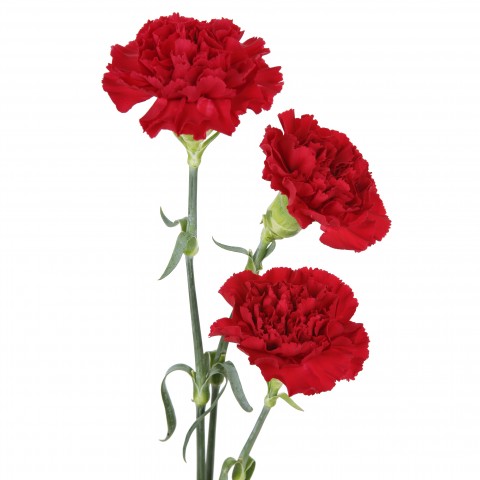How do you wish someone well in Korean? What can you say to express congratulations or condolences in Korean?
Today we’re going to introduce many different ways to send best wishes to someone you care about in Korean. This includes some of the most important events in Korea, such as weddings, graduations, university admissions, and so on. If you master these messages, you’ll be able to be part of—and enjoy—important life events with the locals. It’s also a great chance for you to practice the language!
Table of Contents
- How to Say “Happy Birthday” in Korean
- Various Messages about Pregnancy and Birth
- Congratulations in Korean: Graduations
- Various Messages for University Admissions
- Various Messages for New Jobs and Promotions
- Messages for Retirement
- Congratulations in Korean: Weddings
- Messages for Death and Funerals
- Messages for Delivering Bad News
- Messages for Injuries and Illnesses
- Various Messages for “Happy Parents’ Day” in Korean
- Messages for Various Holidays
- How to Study the Korean Language with KoreanClass101
1. How to Say “Happy Birthday” in Korean
Everyone enjoys celebrating their birthdays! Koreans eat 미역국 (miyeokguk), which means “seaweed soup” on their birthdays. This soup has many health benefits and is very easy to cook at home. How about making “seaweed soup with beef” on your birthday, like Koreans do?
Below are three commonly used messages to wish someone a happy birthday in Korean.
Life Event Message 1 – “Happy Birthday”
- 생일 축하해. (informal)
Saengil chukahae.
*Commonly used phrase among friends - 생일 축하해요. (informal-formal)
Saengil chukahaeyo. - 생일 축하드립니다. (formal)
Saengil chukadeurimnida.
*Use this phrase when you want to express respect for someone. - 생신 축하드립니다. (formal)
Saengsin chukadeurimnida.
*Use this phrase when addressing someone who is a lot older than you, such as your grandparents.
If you’re not sure which formal phrase to use, it’s safe to say 생일 축하드려요 (Saengil chukadeuryeoyo) or 생일 축하드립니다 (Saengil chukadeurimnida).
Life Event Message 2 – “I hope you have a happy birthday!”
- 행복 가득한 생일 보내세요. (formal)
Haengbok gadeukan saengil bonaeseyo. - 행복 가득한 생일 보내. (informal)
Haengbok gadeukan saengil bonae.
Life Event Message 3 – “Happy belated birthday!”
- 늦었지만, 생일 축하해! (informal)
Neujeotjiman, saengil chukahae!
*You can write and speak this phrase; the phrase is informal.
Do you know how to sing Happy Birthday in Korean? The lyrics are quite easy because it’s directly translated from English.
생일 축하합니다.
Saengil chukahamnida.
“Happy birthday to you”
생일 축하합니다.
Saengil chukahamnida.
“Happy birthday to you”
사랑하는 우리 [이름]
Saranghaneun uri [ireum]
“Happy birthday dear [name]”
생일 축하합니다.
Saengil chukahamnida.
“Happy birthday to you”
We have more birthday-related study materials on KoreanClass101. Check them out and sing a birthday song in Korean!
2. Various Messages about Pregnancy and Birth
In Korea, when a baby becomes 100 days old, they organize a ceremony called 백일잔치 (baegiljanchi), which means “100-day-celebration.” On this day, people who were invited to the ceremony bring lots of gifts for the baby, such as gold necklaces, bracelets, and rings. Below are some congratulations in Korean for pregnancy or a new baby!
Life Event Message 1 – “I will be a dad next year!”
- 내년에 아이 아빠가 된다! (informal)
Naenyeone ai appaga deonda!
I’ll be a father next year! - 내년에 아이 엄마가 됩니다! (formal)
Naenyeone ai eommaga doemnida!
I’ll be a mother next year!
Life Event Message 2 – “I’ll pray for the healthiness of the baby!”
- 아이가 건강하도록 기도할게! (informal)
Aiga geonganghadorok gidohalge! - 아이가 건강하도록 기도할게요! (formal)
Aiga geonganghadorok gidohalgeyo!
Life Event Message 3 – “Congratulations! I wish the baby grows healthy.”
- 축하해! 건강하게 자라길 바래! (informal)
Chukahae! Geonganghage jaragil barae!
3. Congratulations in Korean: Graduations
On graduation day, Korean students throw flour and eggs at each other to celebrate—some even go as far as to tear their school uniforms! This is because they want to express themselves and get rid of all the stress they had to deal with in their school years.
Life Event Message 1 – “Congratulations on your graduation!”
- 졸업을 진심으로 축하드립니다. (formal)
Joreobeul jinsimeuro chukadeurimnida.
*Use this phrase if you want to show great respect to someone who is graduating. - 졸업을 진심으로 축하해! (informal)
Joreobeul jinsimeuro chukahae!
*Use this phrase with friends (it also expresses how happy you are that your friend is graduating). - 축하해! (informal)
Chukahae!
*Use this phrase with friends; it’s commonly used.
Life Event Message 2 – “Congrats!”
- 축! 졸업! (informal)
Chuk! Joreop!
This phrase is only used in writing, such as in cards and messages. 축 (chuk) is a shortened word for 축하 (chuka), meaning “congratulate.” This message is used among friends.
Life Event Message 3 – “You did it! Congrats!”
- 잘해냈어, 축하해!
Jalhaenaesseo, chukahae!
4. Various Messages for University Admissions
When referring to top Korean universities, instead of mentioning each university, they say “SKY.” SKY is an acronym used to refer to the top three universities in Korea: Seoul National University, Korea University, and Yonsei University. Many prestigious universities in Korea offer a Korean language school for Korean learners, so if you want to land a job in Korea, graduating from one of these universities will surely impress your potential employer.
Life Event Message 1 – “I’m so proud of you!”
- 네가 정말 자랑스러워!
Nega jeongmal jarangseureowo!
Life Event Message 2 – “Congratulations”
- 입학 축하해요! (formal)
Ipak chukahaeyo! - 입학 축하해! (informal)
Ipak chukahae!
Life Event Message 3 – “Congratulations on passing the exam.”
- 시험 합격을 축하합니다. (formal)
Siheom hapgyeogeul chukahamnida. - 시험 합격한것 축하해. (informal)
Siheom hapgyeokangeot chukahae.
5. Various Messages for New Jobs and Promotions
Getting a job in Korea is very tough, even for Koreans. Some fresh graduates spend an extra one to two years preparing to find a job they like; many Koreans stay unemployed for many years. Unemployment rates increased by 4.5% in 2019 compared to 2018, and it seems that the rate isn’t improving at all. Currently, the government is working on increasing job opportunities.
Life Event Message 1 – “Congratulations on your new job.”
- 입사 축하해. (informal)
Ipsa chukahae. - 입사를 축하드립니다. (formal)
Ipsareul chukadeurimnida.
Life Event Message 2 – “Congratulations on your promotion!”
- 승진 축하해! (informal)
Seungjin chukahae! - 승진을 축하드립니다. (formal)
Seungjineul chukadeurimnida.
Life Event Message 3 – “I wish you health and prosperity.”
- 귀하의 건강과 사업 번창을 기원합니다. (formal)
Gwihaui geonganggwa saeop beonchangeul giwonhamnida.
Useful links:
- 직업 관련 필수 단어 20개 (jigeop gwallyeon pilsu daneo isipgae) “20 Common Words for Occupations”
- 사무실에서 (samusireseo) “At the Office”
- 회의 (hoeui) “Meetings”
- Korean Companies
6. Messages for Retirement
Retirement age is about sixty in Korea, but many elders choose to find a part-time job in order to stay financially independent from their children.
Life Event Message 1 – “Best wishes on your new chapter in life.”
- 인생의 새로운 장을 기원합니다. (formal)
Insaengui saeroun jangeul giwonhamnida.
Life Event Message 2 – “I wish you all the best.”
- 언제나 좋은 일이 있기를 기원합니다. (formal)
Eonjena joeun iri itgireul giwonhamnida.
Life Event Message 3 – “Congratulations on your retirement.”
- 은퇴를 축하드립니다. (formal)
Euntoereul chukadeurimnida.
7. Congratulations in Korean: Weddings
Korean weddings have a very interesting tradition. There’s always a session where friends of the bride or groom put on a performance, including singing and dancing. This is called 결혼식 축가 (gyeolhonsik chukga).
Life Event Message 1 – “We’re getting married!”
- 저희 결혼해요! (formal)
Jeohui gyeolhonhaeyo!
This phrase is used by someone who is getting married, to let others know about their marriage.
Life Event Message 2 – “Congratulations! Wishing you a long-lasting marriage!”
- 축하해. 오래오래 행복하게 살아! (informal)
Chukahae. Oraeorae haengbokage sara!
Life Event Message 3 – “You two are truly made for each other.”
- 두 사람은 정말 천생연분이에요. (formal)
Du sarameun jeongmal cheonsaengyeonbunieyo.
Useful links:
- 한국어로 가장 로맨틱한 데이트 아이디어 열 개 알아보기 (hangugeoro gajang romaentikan deiteu aidieo yeol gae arabogi) “The 10 Most Romantic Ideas for a Date”
- 데이트할 때 자주 쓰이는 한국어 구 (deiteuhal ttae jaju sseuineun hangugeo gu) “Common Phrases You’ll Need for a Date”
8. Messages for Death and Funerals
Before we move on to useful phrases, it’s important to be aware of some Korean condolences etiquette for funerals. When someone passes away, the funeral is usually held on the underground floor of the hospital. Family members are to wear Hanbok in black, and women need to wear a white ribbon on their heads.
Here are the most common Korean condolences messages:
Life Event Message 1 – “I am at a loss for words.”
- 뭐라고 말씀드려야 할지 모르겠네요. (formal)
Mworago malsseumdeuryeoya halji moreugenneyo.
Life Event Message 2 – “Please accept my condolences.”
- 진심으로 애도를 표합니다. (formal)
Jinsimeuro aedoreul pyohamnida.
Life Event Message 3 – “I am so sorry to hear about your loss.”
- 삼가 조의를 표합니다. (formal)
Samga jouireul pyohamnida. - 삼가 고인의 명복을 빕니다. (formal)
Samga goinui myeongbogeul bimnida.
Useful links:
- 현충일 (hyeonchungil) “Memorial Day”
- 6.25 사변일 (yugio sabyeonil) “6.25 Day of the Outbreak of the Korean War”
9. Messages for Delivering Bad News
It’s not always easy to give bad news to someone, especially in cultures like that of Korea, where people tend to avoid having uncomfortable conversations. However, these phrases are a smooth way to start a difficult conversation and let the listener know what to expect.
Life Event Message 1 – “I have some good news and bad news.”
- 좋은 소식도 있고 나쁜 소식도 있어. (informal)
Joeun sosikdo itgo nappeun sosikdo isseo. - 좋은 소식과 나쁜 소식이 있어요. (formal)
Joeun sosikgwa nappeun sosigi isseoyo.
Life Event Message 2 – “I am afraid I have some bad news.”
- 유감스럽게도 나쁜 소식을 전해야 하겠습니다. (formal)
Yugamseureopgedo nappeun sosigeul jeonhaeya hagetseumnida. - 미안하지만 나쁜 소식부터 말해야할 것 같아. (informal)
Mianhajiman nappeun sosikbuteo malhaeyahal geot gata.
Life Event Message 3 – “I hate to be the one to tell you this.”
- 이런 안 좋은 소식 말씀드리고 싶지 않습니다만. (formal)
Ireon an joeun sosik malsseumdeurigo sipji anseumnidaman. - 이런 안 좋은 소식 부터 말하기 싶진 않지만. (informal)
Ireon an joeun sosik buteo malhagi sipjin anchiman.
Useful Links:
- 슬픈가요? 부정적인 감정을 표현하는 단어 21개를 배우세요. (seulpeungayo? bujeongjeogin gamjeongeul pyohyeonhaneun daneo seumulhangaereul baeuseyo.) “Feeling Sad? Learn the Top 21 Words for Negative Emotions”
- 부정적 형용사 (bujeongjeok hyeongyongsa) “Negative Adjectives”
10. Messages for Injuries and Illnesses
There is a number of etiquette rules that you need to follow when visiting someone at a hospital in Korea.
1) It’s considered rude if you visit the hospital without prior arrangement. The person who is at the hospital may not be in the room when you visit them, or perhaps they want to have time to themselves. So be sure to check their schedule first.
2) This rule may vary depending on the person, but try not to stay there for too long. A usual visit is between thirty minutes and an hour. If the person is in a private room, then you may be able to stay for up to two hours. But it’s always good to check with the person.
3) Be careful about what color of flowers you buy. Red connotes “blood” and white flowers are for the deceased. Therefore if you’re planning to buy some flowers, avoid these two colors.
Be sure to keep these etiquette rules in mind when offering Korean sympathy condolences or encouragement!
Life Event Message 1 – “Get well soon.”
- 빨리 나아. (informal)
Ppalli naa. - 빨리 나으세요. (formal)
Ppalli naeuseyo.
Life Event Message 2 – “Take good care of yourself.”
- 몸조리 잘하세요. (formal)
Momjori jalhaseyo. - 몸조리 잘해. (informal)
Momjori jalhae.
Life Event Message 3 – “Take a rest at home today.”
- 오늘은 집에 가서 푹 쉬어. (informal)
Oneuren jibe gaseo puk swieo. - 오늘은 집에 가서 푹 쉬세요. (formal)
Oneureun jibe gaseo puk swiseyo.
Useful Links:
- Must-know Christmas Day Vocabulary
- Holiday Greetings and Wishes for the Holiday Season
- 흔한 건강 질환 (heunhan geongang jilhwan) “Common Health Problems”
- 질병 (jilbyeong) “Being Sick”
11. Various Messages for “Happy Parents’ Day” in Korean
Parents’ Day is called 어버이날 (Eobeoinal) in Korean and is annually held on May 8. On this day, children give carnations to celebrate the day with their family.
Life Event Message 1 – “Happy Parents’ Day!”
- 어버이날 축하드려요. (formal)
Eobeoinal chukadeuryeoyo.
Life Event Message 2 – “To me, you are the best parents!”
- 저에게 엄마 아빠는 이 세상 최고의 부모님이에요! (formal)
Jeoege eomma appaneun i sesang choegoui bumonimieyo!
Life Event Message 3 – “Thank you for always being there for me.”
- 항상 곁에 있어주셔서 감사해요. (formal)
Hangsang gyeote isseojusyeoseo gamsahaeyo.
And most importantly, don’t forget to add 사랑해요. (Saranghaeyo.) or 사랑합니다. (Saranghamnida.) at the end of the message. If you’re the type of person who doesn’t say “I love you” to your family members, Parents’ Day is your chance to do it. It will melt your parents’ (or your homestay parents’) hearts!
12. Messages for Various Holidays
Many western holidays such as Valentine’s Day and Christmas, are celebrated among friends. People usually go to a restaurant together or watch a film.
However, Korean events such as New Year’s or Harvest Day are celebrated among family members.
Below are some ideas for how to give Korean New Year congratulations and other holiday wishes!
Life Event Message 1 – “Wishing you joy and prosperity for the new year.”
- 새해에는 기쁨과 번영이 있기를 기원합니다. (formal)
Saehaeeneun gippeumgwa beonyeongi itgireul giwonhamnida.
Life Event Message 2- “Merry Christmas and Happy New Year!”
- 즐거운 성탄과 행복한 새해 되세요. (formal)
Jeulgeoun seongtangwa haengbokan saehae doeseyo. - 즐거운 크리스마스와 행복한 새해 보내길 바래! (informal)
Jeulgeoun keuriseumaseuwa haengbokan saehae bonaegil barae!
Life Event Message 3 – “Happy ~”
- 해피 + ~데이 (informal)
haepi + ~dei
*This is an informal message and is the easiest way to create a simple message for your friend. Simply add a special day after 해피 (haepi), to say “Happy ~ day!” For example, if you want to send a simple Valentine’s Day message to your girlfriend or a friend, write 해피 (haepi) followed by 발렌타인 데이 (ballentain dei).
Useful Links:
- How to Say Merry Christmas in Korean
- How to Say Happy New Year in Korean & New Year Wishes
- What is White Day in Korea? Celebrate Korean White Day!
- 발렌타인 데이 (ballentain dei) “Valentine’s Day”
- Happy New Year! Words & Phrases for the New Year!
13. How to Study the Korean Language with KoreanClass101
KoreanClass101 has many free study materials for you to improve your language skills, so why not sign up for your lifetime account today? Learning a new language isn’t easy, and it certainly takes some time to improve. But taking your time to memorize and understand vocabulary and phrases is crucial. So don’t rush. I hope you enjoyed reading this article, and have a great day.
Before you go, drop a comment to let us know which of these life event messages you found most helpful! Are there any other life event messages you want to learn? We look forward to hearing from you!
























